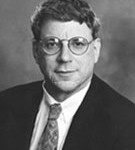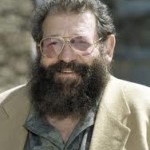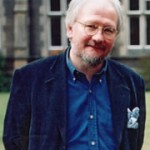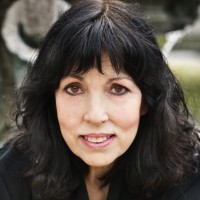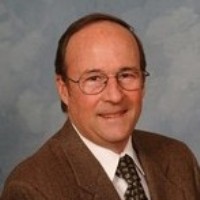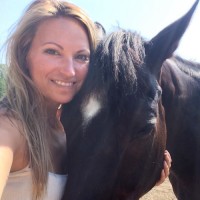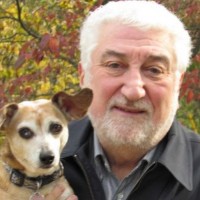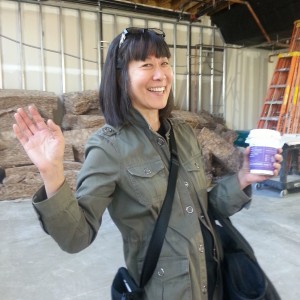Steven Wise, J.D., is an American legal scholar who specializes in animal protection issues, primatology, and animal intelligence. He teaches animal rights law at Harvard Law School, Vermont Law School, John Marshall Law School, Lewis & Clark Law School, and Tufts University School of Veterinary Medicine. He is a former president of the Animal Legal Defense Fund, and founder and president of the Center for the Expansion of Fundamental Rights. The Yale Law Journal has called him “one of the pistons of the animal rights movement.”
Wise is the author of An American Trilogy (2009), in which he tells the story of how a piece of land in Tar Heel, North Carolina, was first the home of Native Americans until they were driven into near-extinction, then a slave plantation, and finally the site of factory hog farms and the world’s largest slaughterhouse. Though the Heavens May Fall (2005), recounts the 1772 trial in England of James Somersett, a black man rescued from a ship heading for the West Indies slave markets, which gave impetus to the movement to abolish slavery in Britain and the United States (see Somersett’s Case). Drawing the Line (2002), which describes the relative intelligence of animals and human beings. And Rattling the Cage (2000), in which he argues that certain basic legal rights should be extended to chimpanzees and bonobos.
Bernard Rollin, Ph.D., is a University Distinguished Professor and a professor of philosophy, biomedical sciences and animal sciences at Colorado State University, where he has taught since 1976. He developed the world’s first courses in veterinary medical ethics, ethical issues in animal science, and biology combined with philosophy, which he not only teaches at Colorado State, but also has helped universities around the world develop similar programs.
Rollin’s scholarly interests include both traditional philosophy and applied philosophy. He has written more than 400 scientific articles and 14 books, including Natural and Conventional Meaning (1976), Animal Rights and Human Morality (1981, 1993 & 2006), The Unheeded Cry: Animal Consciousness, Animal Pain and Scientific Change (1988 &1998), Farm Animal Welfare (1995), The Frankenstein Syndrome (1995), Science and Ethics (2006), and Putting the Horse Before Descartes (2011). He has edited a two volume The Experimental Animal in Biomedical Research (1989 & 1995). He is one of the leading scholars in animal rights and animal consciousness and has lectured over 1500 times all over the world. He is a principal author of the 1985 Animal Welfare Act and an international voice in animal-use ethics and has testified to Congress about animal welfare issues. He is a weight-lifter, horseman, and motorcyclist.
Dr. Justin Jampol is the Founder and Executive Director of The Wende Museum and Archive of the Cold War in Culver City, California and is Adjunct Professor of History at Claremont Graduate University. The Wende Museum holds the largest collections in the world of East European artifacts, artworks, and archives from the Cold War era.
Dr. Jampol’s work has been featured in The Atlantic, Los Angeles Magazine, Frankfurter Allgemeine Zeitung, Los Angeles Times, Wall Street Journal, and Humanities. He has produced three documentary films on the subject of the Cold War, as well as several urban art projects including The Wall Project, which received international attention and media coverage. Dr. Jampol earned his Doctoral degree in modern history from Oxford University where he was the recipient of a grant from the Carr and Stahl Fund and studied as an undergraduate at the University of California, Los Angeles where he was recently inducted as a Notable Alumni.
Cynthia Bathurst, Ph.D., is co-founder and executive director of Safe Humane Chicago, a campaign to end violence for children and companion animals by showing people how kindness and compassion toward animals lead to safer, more humane communities. The Safe Humane concept grew out of her work with D.A.W.G. (Dog Advisory Work Group), which she co-founded as a nonprofit in 2000 and then started a court advocacy program for court cases involving animal abuse, the first of its kind.
Safe Humane Chicago debuted in 2007. In 2008, Bathurst joined Best Friends Animal Society as national director of Project Safe Humane, designed to implement the successful SHC model in other cities. In 2009 the American Veterinary Medical Association awarded her their Humane Award, an award given to a non-veterinarian who has advanced animal well-being, shown exemplary dedication to the care of animals, and contributed to the community and society.
One of Bathurst’s latest innovative initiatives is “Lifetime Bonds”, a program that pairs shelter dogs with incarcerated teens. The teens and dogs both learn valuable social skills during the bonding process: the dogs become more adoptable and the at-risk children learn how to develop and maintain positive relationships. After the teens leave detention, they are invited to intern with the SHC Court Case Dog Program. This program works with dogs who are the victims of abuse, neglect or cruelty in court cases followed by court advocates. She has also served on numerous community policing, animal control/welfare and public safety programs, boards and task forces. She currently serves as president of the Chicago Animal Shelter Alliance and is an advisor to the National Canine Research Council.
The Revd Professor Andrew Linzey, PhD, DD, is a member of the Faculty of Theology in the University of Oxford, and Honorary Research Fellow of St Stephen’s House, Oxford. He is also Honorary Professor at the University of Winchester, and Special Professor at Saint Xavier University, Chicago. In addition, he is the first Professor of Animal Ethics at the Graduate Theological Foundation, Indiana. Professor Linzey previously held the world’s first academic post in Theology and Animal Welfare — at Mansfield College, Oxford (1992-2000), and subsequently at Blackfriars Hall, Oxford (2000-2006). Prior to his focus on animal issues, he served in several professorial and directorial positions in theology at other universities in England as well as Israel.
Professor Linzey has written or edited 20 books and more than 100 articles. His work has been translated into Italian, Spanish, German, Chinese, Taiwanese, and Japanese. He has lectured and broadcast extensively in Europe and the United States. In 1990, he was awarded the Peaceable Kingdom Medal for outstanding work in the field of theology and animals. In 2001, he was awarded a DD (Doctor of Divinity) degree by the Archbishop of Canterbury in recognition of his ‘unique and massive pioneering work at a scholarly level in the area of the theology of creation with particular reference to the rights and welfare of God’s sentient creatures’. This is the highest award that the Archbishop can bestow on a theologian and the first time it has been awarded for theological work on animals. In 2006, he was placed on The Independent’s ‘Good List’ of 50 people who have changed Britain ‘for the better’.
Writer Ken Foster’s compelling and tender accounts of disaster, rescue and the remarkable strength of human-animal relationships have earned him a following as passionate and loyal as the accounts which fill the pages of his books. Author of The Dogs Who Found Me: What I’ve Learned from Pets Who Were Left Behind and Dogs I Have Met: And the People They Found, Ken writes from the unique perspective of someone who survived 9/11 in New York City… before moving to New Orleans with his dogs prior to Hurricane Katrina. As a reviewer for The San Francisco Chronicle explained: “Foster’s style is blunt, funny and poignant. He smoothly melds the events of his turbulent life along with the gritty details of rescuing abandoned dogs into a piece that goes to the heart.”
Ken’s work has appeared in numerous publications, including The New York Times Book Review and The Village Voice, and has received awards, such as a New York Times Notable Book of the Year for a collection of short stories titled “The Kind I’m Likely to Get.” He has also been awarded fellowships to Yaddo, the Sewanee Writers Conference, the New York Foundation for the Arts, and the Wesleyan Writers Conference. In addition to writing and rescue work (not to mention book tours and public speaking), Ken also teaches creative writing at Tulane University. He is the author of the immensely popular I’m a Good Dog: Pit Bulls, America’s Most Beautiful (and Misunderstood) Pet.
Diana Reiss, Ph.D., is a cognitive psychologist and professor in the Department of Psychology at Hunter College and the Biopsychology and Behavioral Neuroscience Graduate Program of the City University of New York (CUNY). She is also an adjunct in the Department of Ecology, Evolution and Environmental Biology at Columbia University, a director of dolphin research at the National Aquarium in Baltimore and an elephant research associate at the Smithsonian’s National Zoo in DC. She also serves as a scientific advisor of the Animal Welfare Committee of the Association of Zoos and Aquariums and has either co-founded and/or served as a director on the boards of several animal-related non-profits, including Misfits Animal Sanctuary, Act for Dolphins and Thinking Animals, Inc.. Some of her earlier roles included founder and director of the Marine Mammal Research Program at Marine World Africa USA in California and a marine sciences director at the New York Aquarium of the Wildlife Conservation Society.
Dr. Reiss’ ground-breaking research into animal intelligence and communication, particularly dolphins, spans several decades and has been well-received in hundreds of scientific journals, newspaper features and television features around the globe. She is the author of numerous articles and books, including most recently: The Dolphin in the Mirror: Exploring Dolphin Minds and Saving Dolphin Lives. Dr. Reiss’ ability to bring both passion and out-of-the-box thinking to her research also led her to being one of the first research scientists in her field to openly advocate for animal welfare and conservation as important components of her work. Her early advocacy efforts led to the shift to dolphin-safe nets that are now standard in the tuna-fishing industry. More recently, she has been a strong voice against the dolphin-killing drive hunts in Japan. As an outgrowth of those efforts, she also served as the scientific advisor to the 2009 Oscar-winning documentary, The Cove.
David Favre is The Nancy Heathcote Professor of Property and Animal Law at the Michigan State University College of Law, where he has taught since 1976. Professor Favre has authored dozens of articles and books dealing with animal issues including such topics as animal cruelty, wildlife law, the use of animals for scientific research, and international control of animal trade. His books include Animal Law and Dog Behavior, Animal Law: Welfare, Interest, and Rights, and International Trade in Endangered Species. He also has presented to international audiences on these topics. He was the creator of the Animal Legal & Historical Web Center, a comprehensive database for statutes, cases and other materials relating to animal law, remaining its Editor-in-Chief.
Prior to joining the Law College faculty in 1976, Professor Favre was a practicing attorney in Virginia. He received his J.D. from the College of William and Mary in 1973.
Professor Favre was a national officer of the Animal Legal Defense Fund for over twenty years and is presently on the ABA Committee on Animal Law. He served as interim dean of the Law College from 1993 to 1996 and from 1999 to 2000. He teaches Property, International Environmental Law, Wildlife Law, and Animal Law.
Joe Connelly is the Founder and Publisher of VegNews Magazine, the premier vegan lifestyle magazine in the U.S.. Four years after founding the Syracuse Area Vegetarian Education Society in 1996, Joe realized that the country needed a national publication to unify the vegetarian movement. Together with co-founder Colleen Holland, they launched VegNews Magazine in 2000 “with a whopping $3k in start-up funds.”
In less than a decade, Joe’s vision had become a staple in bookstores and home kitchens, as well as the benchmark for the cottage industry of vegetarian magazines that it inspired. Named one of the “Best 50 Magazines” by the Chicago Tribune (#18) and the country’s “Best Lifestyle Magazine” in 2008, 2009, and 2010, VegNews is read by more than 225,000 people in 38 countries. More than just recipes (although the recipes are delicious!), VegNews serves up the latest in meat-free news, health coverage, travel features, timely interviews, vegetarian city guides, new products, practical tips, politics, celebrity buzz and more. In addition to its flagship publication, the media company also produces the award-winning VegNews.com, along with a collection of popular e-newsletters, blogs, cookbooks, events, and vacations.
Joe was inducted into the North American Vegetarian Society Vegetarian Hall of Fame in 2009 and the U.S. Animal Rights Hall of Fame in 2012. He came to vegetarianism from a passion for environmental issues, a commitment Joe continues to demonstrate to-date by printing VegNews on 75% post-consumer, recycled paper.
Stephen W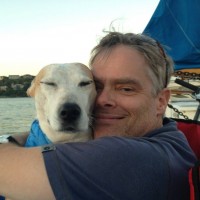 ells
ells
Stephen Wells is the executive director of the Animal Legal Defense Fund. Among his many accomplishments so far, Steve established and ran ALDF’s Animal Law Program, which provides pro bono opportunities – and support – for attorneys who wish to tackle animal law cases. He has expanded the number of the organization’s student chapters (SALDF) from 6 to 184, helped grow the number of law schools teaching animal law from 12 to more than 140, established the ALDF fellowship program, helps fund the Lewis & Clark Law School’s Center for Animal Law Studies, created an in-house litigation program that has generated over $1.2M in donated legal services, increased ALDF’s revenue by more than 50%, and was instrumental in many of the nation’s largest animal-related cases, including the infamous North Carolina Woodley hoarding case and the ongoing California foie gras suit.
Prior to joining ALDF in 1999, Steve served as the executive director of the Alaska Wildlife Alliance in Anchorage where he more than doubled that staff, and became known for his work to protect Alaska’s wildlife, particularly wolves and bears, and its unique wild places. A tireless and egoless advocate for both animals and the environment, Steve has been interviewed by CNN, The New York Times, The Washington Post and ESPN. In addition to his full-time work, he has continued to volunteer his time for local organizations and projects.
Jaclyn Sharp, founder and CEO of IMPOSTER, is one of the hottest designers revolutionizing the cruelty-free fashion industry. More than just replacing fur and leather, IMPOSTER is an Animal Friendly Lifestyle Brand & Marketing Platform that gives animals a share of products they have inspired through supporting animal charities. Importantly, IMPOSTER’s distinctive Cruelty Free Product Symbol makes animal friendly products recognizable from the outside. This innovative approach upends longstanding traditions of trying to pass a fake off as real… by instead recognizing these exceptionally soft and warm man-made materials with a badge of honor. The brand falls into what is being called the fourth sector or a “For-Benefit Corporation,” a hybrid between the for profit & non profit sectors.
Wayne Pacelle, President and CEO of The Humane Society of the United States has said “IMPOSTER could be a serious game-changer for animals and the fashion industry.” IMPOSTER Fur sells at Barneys New York, Henri Bendel, Neiman Marcus, Liberty of London, & other top retail stores. Celebrity supporters include: Sarah Jessica Parker, Sandra Bullock, Carrie Underwood, Jessica Chastain, Dakota Fanning, Freida Pinto, Christina Applegate, Emmy Rossum, Kaley Cuoco, Kerry Washington, Marisa Tomei, Hailee Steinfeld, Abigail Breslin, Anne V, Taryn Manning, Nikki Reed, Olivia Palermo, Angie Harmon, and Jessica Lowndes, among others.
IMPOSTER was inspired by a rescued horse named Draco. The white star at the center of the IM symbol is in his honor, because Draco has a perfect white star on his forehead. As Sharp explains, “When we see something beautiful, we honor its beauty. We don’t take a life because we covet something it has.”
Alan Beck, ScD, is one of the pioneers in the field of human-animal bond studies. Longtime Director of Purdue University School of Veterinary Medicine’s Center for the Human-Animal Bond, Dr. Beck also oversees HABRI Central, the library-research arm of the Human-Animal Bond Research Initiative, as well as serves as Principal Investigator for its veterinary program. The HABRI Foundation is one of the world’s leading non-profit research and education organizations, focusing on gathering, funding and sharing the scientific research that demonstrates the positive health impacts of animals on people.
Dr. Beck received his Baccalaureate from Brooklyn College and Master’s degree from California State University at Los Angeles. He received his Doctorate in Animal Ecology from The Johns Hopkins University School of Public Health. He. Beck directed the animal programs for the New York City Department of Health for five years, then was the Director of the Center for the Interaction of Animals and Society at the University of Pennsylvania, School of Veterinary Medicine for 10 years. He is one of the founding members of the Delta Society. In 1990, Dr. Beck became the Dorothy N. McAllister Professor of Animal Ecology and Director of the Center for the Human-Animal Bond in the School of Veterinary Medicine, Purdue University, West Lafayette, Indiana. The Center was established to develop a comprehensive understanding of the relationship between people and their companion animals.
Kim Koga is the executive director of the Museum of Neon Art, and is currently responsible for steering this long-standing niche museum from its humble beginnings in downtown Los Angeles to its new, multi-million dollar home under construction in the heart of Glendale’s up-and-coming theatre and shopping district. MoNA will serve as the anchor for Glendale’s new Cultural Arts District.
Koga is also an experienced glass artist herself, having exhibited at dozens of solo and group exhibitions throughout southern California and as far away as Japan and Taiwan. She’s also served in various roles at museums in the L.A.-area as well as on the Board of Directors for the Glass Art Society.
.
Born in Burbank and a life-long resident of the San Fernando Valley, Tommy’s fascination with the history of this storied region began at a very young age. He started collecting artifacts from the Valley’s past over 20 years ago and now holds the largest collection is the largest of its kind pertaining to the San Fernando Valley and surrounding areas. Gelinas established the Valley Relics Museum in 2012 to both preserve and showcase the area’s rich history, and opened its doors to the public in October 2013.
Visitors to the museum are instantly transported back in time, amid collections that range from the personal effects of local celebrities, to the nostalgic dollar prices on menus from beloved restaurants, to the glammy neon signs that were the hallmark of mid-century modern life in sunny southern California. Whether a first time visitor or faithful native, there’s something to captivate everyone that strolls through the memorabilia of this famous region’s vibrant and lasting legacy.

